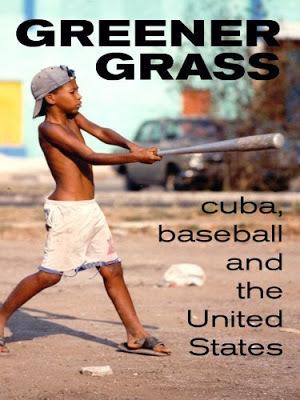En Cuba, no se habla de la pelota, se discute… ~dicho popular
Last night, I watched Greener Grass: Cuba, Baseball and the United States, a documentary that recounts the history of baseball in Cuba. It took some effort to get my hands on a copy, but with the help of the folks at the public library, I finally managed to get one through inter-library loan.

The history covered in the documentary begins in 1878, with the formation of the first Cuban League. Throughout the video, the cultural and political implications of the game as it exists in Cuba receive scrutiny. Given the nature of the relationship between the United States and Cuba, it is no surprise that baseball would necessarily have a political role. Up until the Cuban Revolution and the ban on professional sports in Cuba in the early 1960s, Americans and Cubans frequently played ball together on the small island nation. Cuban baseball, in fact, had integrated several decades before American baseball. As the documentary depicts, the game has served as both a connection and a barricade between the two nations.
The documentary incorporates a ton of historical footage, including interviews with men like Rene Arocha, who was among the first forty Cuban players to defect during the 1990s, Orlando “El Duque” Hernandez, who went on to play for the New York Yankees, and Tommy Lasorda, the former Los Angeles Dodgers manager who also played in the Cuban Professional League.
What struck me most intensely as I watched this film was the reverence that Cubans clearly hold for baseball. This may be the National Pastime for the United States, but for Cuba, baseball holds an almost religious status. The level of play and competition in this small nation rivals that of even the most talented American teams. As Cuban fans like to point out, their teams don’t play for fame or money, but rather, they play out of love for the game.
“In Cuba, you don’t talk about baseball, you argue…” ~popular saying





